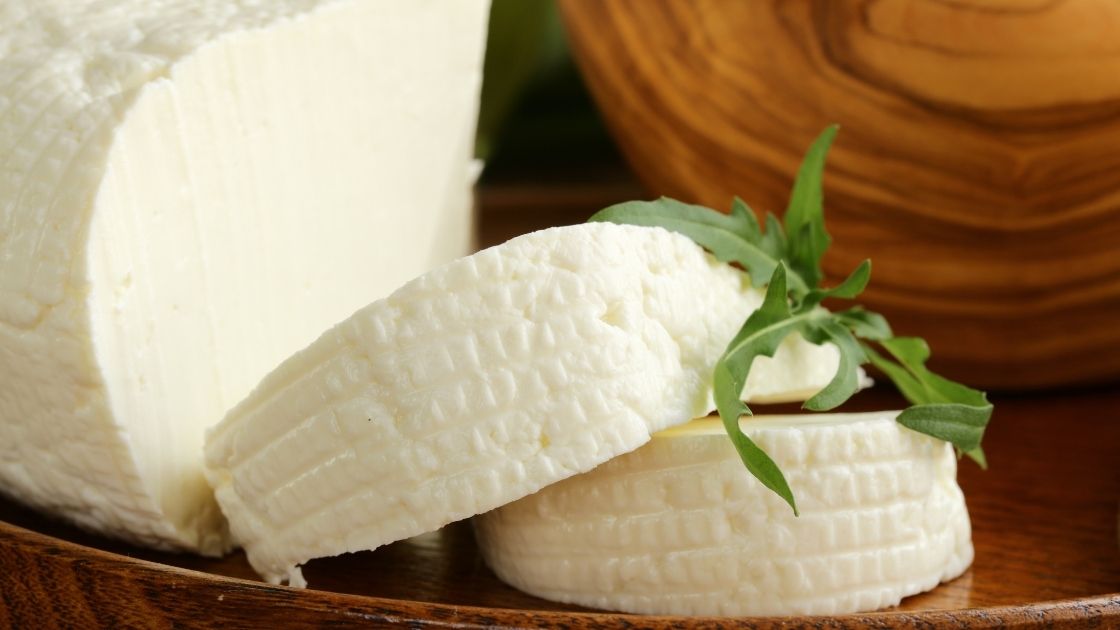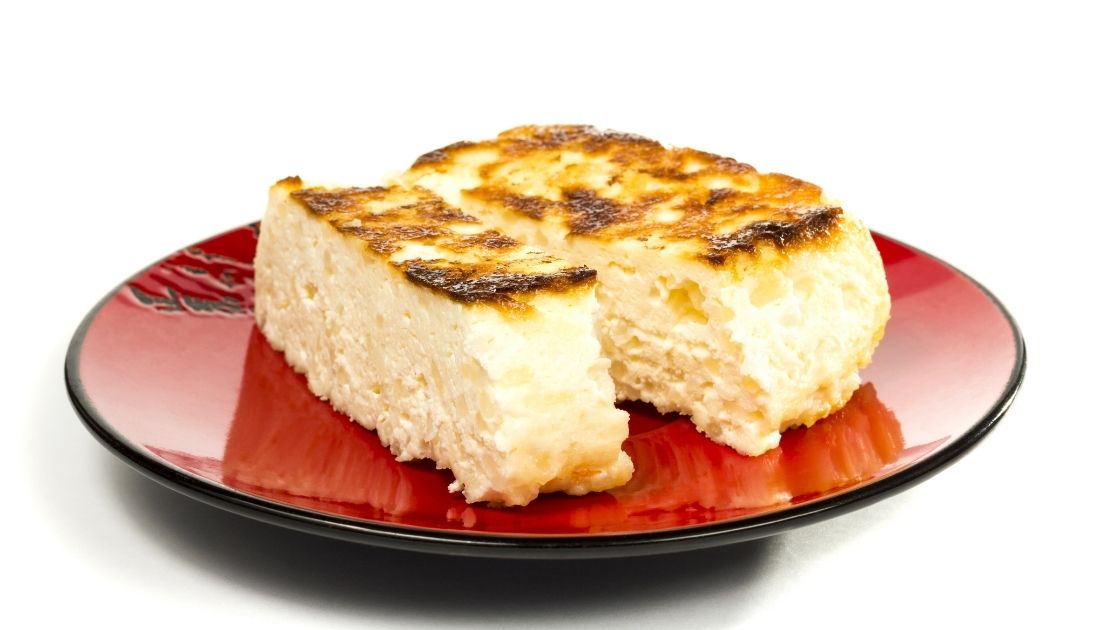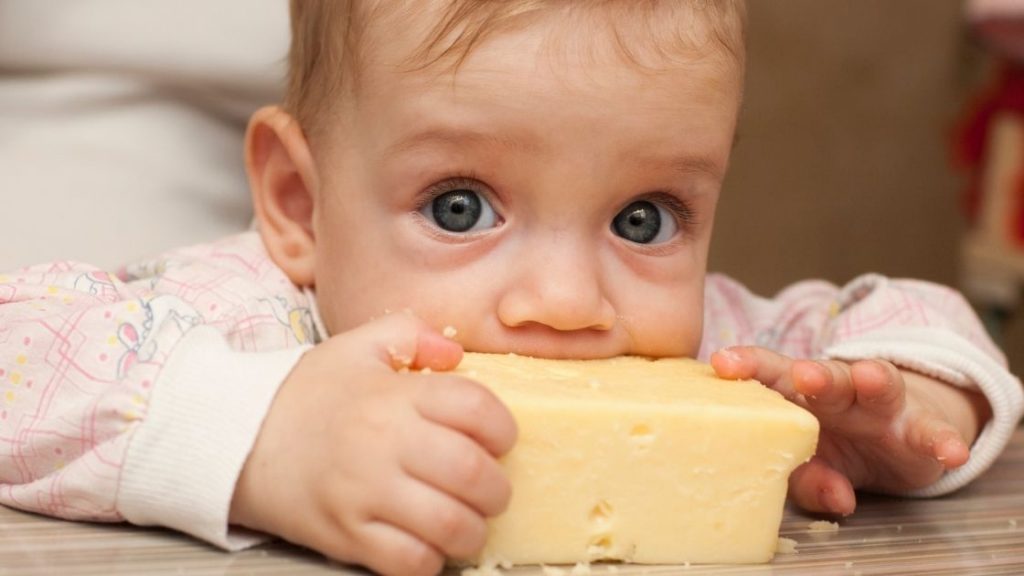Cheese is a good food source that provides many forms of full fat, protein and calcium. We all love cheese and would love it even more if our little ones can enjoy it too. But can they?
Would your child get sick, diarrhea because of the cheese?
Would cheese give your child allergies?
What cheese can baby eat? What cheese is safe for babies?
What cheese can babies not eat?
Easy mama.
While cheese is a delicious food and you are worried but eager to introduce it to your child, there are a few things you need to know. And we will go through all that in this article.
Why you need to be cautious when giving cheese to your baby

Lactose intolerance
Some adults are lactose intolerant. And babies can be too.
Even breastfed babies can be lactose intolerant, because lactose is found in breast milk as well as baby formula.
According to the Australian Breastfeeding Association, “some symptoms of lactose intolerance are liquid, sometimes green, frothy stools and an irritable baby who may pass wind often. If a baby is lactose intolerant, the medical tests ('hydrogen breath test' and tests for 'reducing sugars' in the stools) would be expected to be positive.”
So if your baby is lactose intolerant, be careful when giving cheese to your baby because it would do him/her more harm than good.
Fortunately, there are also other types of cheeses that do not contain lactose and you can feed your child those cheeses once your child is old enough. Be careful as some of the low to free lactose cheese is not pasteurized. For examples: Muenster (with 0-1.1% lactose range), Camembert (with 0-1.8% lactose range), Brie (with 0-2% lactose range), etc.
Salt
Most cheese on the market these days has a high salt content. For example, cottage cheese can have over 350mg of sodium per half cup, string cheese normally has around 200mg of sodium per cheese stick, or cheddar cheese has 200mg of sodium per ounce.
Doctors recommend not to add salt to your baby’s diet too soon and it can cause some potential health problems like kidney damage, high blood pressure, and possibly even an increased risk of heart disease.
Therefore, cheese should be chosen carefully and given to your baby with a very small amount.
Choking hazard
If you decide to do baby-led-weaning with your baby, and the thought of your little one picking up food himself gives you a smile, be careful when giving hard cheese to your baby as it can be a choking hazard. Not common, but possible.
Therefore, your baby always needs your supervision during meal times.
Can babies be allergic to cheese?

Basically any type of food can be an allergic factor to a sensitive immune system. Especially if your baby has eczema or a history of food allergy, consult your baby’s doctor before giving him cheese. As cheese contains milk protein, in some rare cases, it can be an allergic factor.
However, to be cautious, the list of first solid foods you should introduce to your baby shouldn’t contain cheese in it. Once your baby’s digestive system gets comfortable with common food, you can start giving him cheese.
Always remember to apply the 3-day waiting principle. It means you wait for around 3 days before offering something new to your child. This way, you can monitor for allergic reactions and know the cause of it.
Which cheese can baby eat

To find out which cheese is safe for babies, you must ensure that the cheese is pasteurized or you know how to pasteurize it yourself. Babies can eat pasteurized full-fat cheese from 6 months old. This includes hard cheeses, such as fresh mozzarella, goat cheese, mascarpone, ricotta, Swiss cheese (or Emmental cheese), mild cheddar cheese, cottage cheese and cream cheese.
Read the label carefully to know which type of cheese they are, but as long as it is pasteurized full-fat cheese, you are good to go.
Which cheese can baby not eat
According to the NHS, “Babies and young children should not eat mould-ripened soft cheeses, such as brie or camembert, or ripened goats' milk cheese and soft blue-veined cheese, such as roquefort. There's a higher risk that these cheeses might carry a bacteria called listeria.”
However, if you love the taste of those cheeses, don’t worry that you cannot share that taste with your little one. As you can pasteurize it yourself through cooking. You can cook those cheeses nice and thoroughly and the bacteria will be killed. Then your little one can feel the taste.
How to introduce cheese to your baby

Depending on your child’s health situation and age, you can decide on how to introduce cheese to your baby. Here are some ideas for you to try:
Baked cheese sticks
Melted cheese on a cracker
Melted cheese in soft mac and cheese
Melted cheese on a breadstick
Which cheese can baby eat: Wrapping it up
Now you’ve known everything there is to know about what types of cheese you can give to your baby, what types you shouldn’t give, how much you should give him and all the list of things you need to be cautious on before offering cheese to your little one.
Don’t be afraid to let your child try and explore the food. Maybe your child will enjoy it even more than you would imagine.

